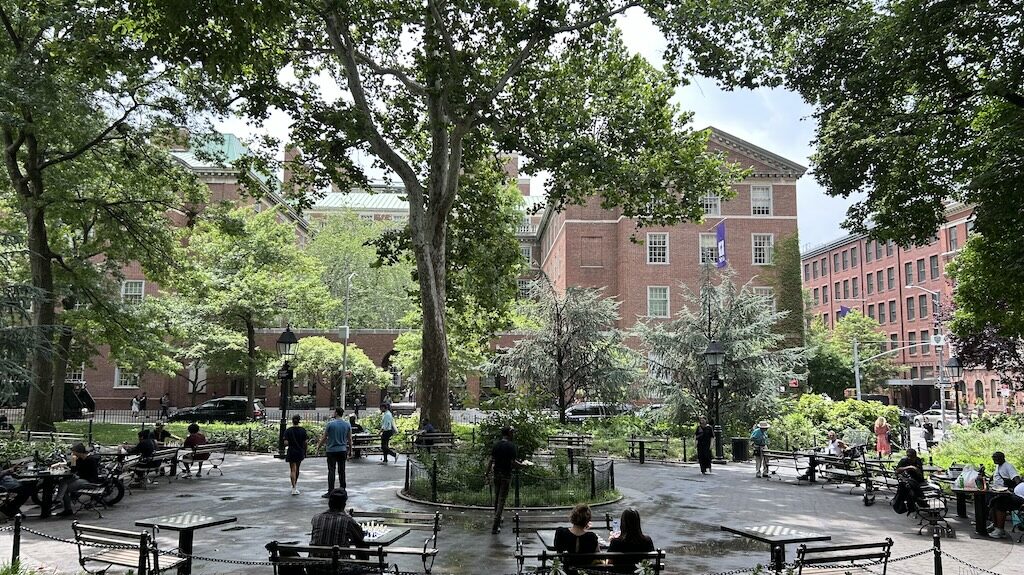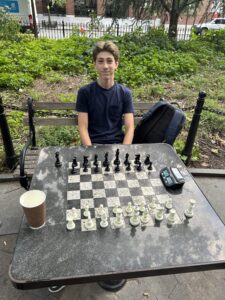Lifestyle & Culture
Finding community on a chessboard
By Yifei Kevin Niu
Brett Fisher and MJ were locked in a game of chess that July afternoon, sitting on wooden benches beneath a Hangman’s Elm in Washington Square Park, the steady hum of New York City in the background as each move brings one of them closer to the $5 prize.
That local hotspot for chess hustlers is not just a place where skilled players challenge strangers for money, it’s also become a hub for chess enthusiasts, drawing a wide range of players from different backgrounds.
Among them are Fisher, a 16-year-old from San Francisco: “I’m here in the afternoons every weekday.” And MJ, who describes himself as “Just some guy who plays chess.”
“I feel at home here,” Fisher said. “It’s just that common interest of chess … That’s really all it takes.”
Fisher has met many locals who share his love for chess: “There’s this guy. He goes by Doctor Who, or, The Doc for short. He’s 102 years old. He also likes to sit at this table. We have played a lot.”
Fisher is grateful for the unexpected friendships, with people like that centenarian, that chess has given him. “Meeting people and playing chess, I feel happy that I came here in the first place and got the chance to meet them because, otherwise, there is just, like, no chance I could do that.”
Fisher also wants more people to play chess. To him, charging for a game creates an unnecessary barrier. “Most of the time I do it for free,” he said. “If you charge for a game, people are less likely to play with you.”
“Chess,” said MJ, who gives out a QR code to his social media page instead of his real name, “is like a language across borders …You don’t have to speak the same language that someone from the United States or China speaks, as long as you understand it on the board.”
“In chess,” MJ added, “you’re playing people with different flags, but you’re still just playing the same game.”
The differing flags, nationalities and nicknames don’t really matter. “Of course they are real people,” Fisher said. “As long as I have something to call them it doesn’t matter what their real names are. I think whether they like chess or not is a lot more important.”
“Chess is more than just a game, it’s a tool for community building,” said Jesse Hoffman, vice president of NYU’s chess team. He started playing chess when he was four and has seen firsthand the unifying power of the game: “I know a lot of people who become very good friends over chess … It could bring nations or groups of people together over competition, but it can also bring communities together over this shared interest in this game.”
While many sorts of players shape New York City’s culture of chess, the game also has a long history of being used as a tool for global diplomacy. A 2022 study published in The Western Undergraduate Research Journal found that “chess served as both a literal and figurative tool in facilitating the diplomatic relationship between the United States of America in the West and the Soviet Union in the East.”
The most notable example, according to those researchers, was the 1972 Chess World Championship. The respect shown between competitors Soviet Boris Spassky and American Bobby Fischer was set against the backdrop of diplomacy efforts between the two countries.
For Brett Fisher, Jesse Hoffman, MJ, and many others, chess is a game where they can find common ground, one checkmate at a time.
The joy of chess comes from the connections it builds. As Fisher said, “I just like playing.”



